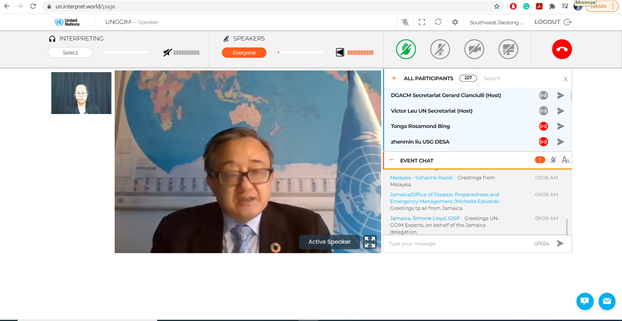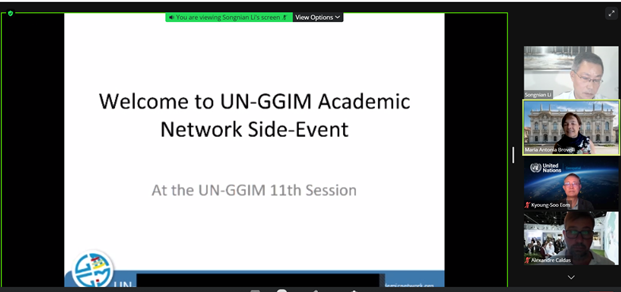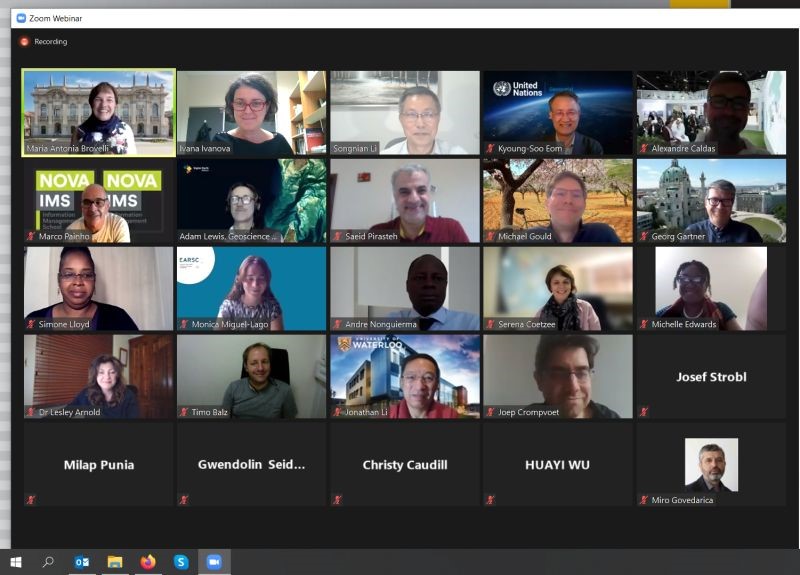The eleventh session of the United Nations Committee of Experts on Global Geospatial Information Management (UN-GGIM) was conducted virtually. More than 250 participants from 90 countries attend the meeting.

Two side events were conducted on (1) Disasters Services Working Group (WG) and (2) Academic Network (AN) UN-GGIM. AN side event was conducted to exchange ideas for the following question.What do you think is needed urgently for education and capacity building to help achieving the Sustainable Development Goals (SDGs)?
Saeid (Adam) Pirasteh represented Southwest Jiaotong University in the meetings. Hehighlighted some of the major keys to education and capacity building to help SDGs. Dr. Pirasteh said, “we needenvironmental protection, economic growth, and social equity(Equity= fair treatment rather than equal treatment).” He also suggested games in education and redesigning curriculums to provide students with learning opportunities on various topics. He continued that the actual environmental challenges due to climate change, population growth, degradation of soil and water, and other natural resources need young geoscientists to understand our planet Earth better and providing efficient geospatial solutions to handle these challenges. More efficiently, the collaboration among developed and underdeveloped countries' academic institutions and professors would be very beneficial to step forward in this way.


He also suggested that the soul of education in teaching children and students how to react with our environment and love our planet by awareness, with the right tools and information can contribute a major role where and when required. Finally, Professor Pirasteh suggested cross-disciplinary and connected professionals using Quadruple Helix Model with four principal actors in the innovation system: science, policy, industry, and society (industry, government, academia, and users/civil society).
The eleventh UN-GGIM meeting closed on 27 August 2021.


